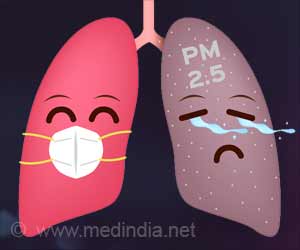Air pollution is linked to detrimental effects on human and marine health, including increased risk of heart disease and stroke.

‘Air pollution can have a hugely damaging effect on the heart and circulatory health, potentially contributing to impaired heart function.’
Read More..




Around 11,000 coronary heart disease and stroke deaths in the UK, each year are attributable to air pollution, specifically due to particulate matter (PM) or small particles in the air that cause health problems. PM2.5 is one of the finest and most dangerous types of PM, is a compound for which the UK has failed to meet EU limits.Read More..
Researchers of this study looked across all vertebrates and particularly focused on a set of compounds that binds to the surface of PM, called polycyclic aromatic hydrocarbons (PAH) as the amount of PAH on PM is associated with the detrimental effect air pollution has on the heart.
While air pollution is known to be dangerous to humans, it actually only became a widely-researched topic in the past five years or so. In marine species, however, the mechanism of how PAH pollution causes heart problems is well understood.
Studies after the 1999 Exxon Valdez oil spill showed that the ecosystem still has not recovered 20 years on. In 2010, research on fish after the Deepwater Horizon oil spill, which released large quantities of PAHs into the marine environment, showed that the heart's ability to contract was impaired.
Dr. Holly Shiels, senior author on the study, from The University of Manchester said:
Advertisement
Dr. Jeremy Pearson, Associate Medical Director at the British Heart Foundation, which partly funded the research presented in this review, commented:
Advertisement
Source-Eurekalert











